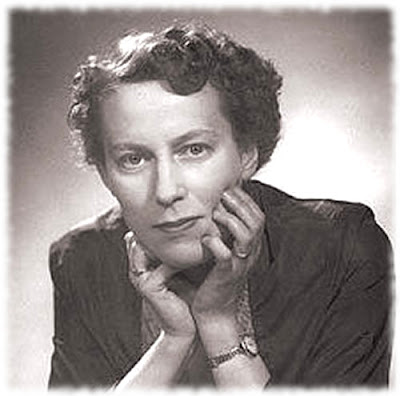If you lay down a solid groove, they will come
Inequality results in yearnings; yearnings are often expressed musically. Along with all the political and social chaos that's erupted in the Middle East, interest in the arts of Arabia has increased tremendously. Since sound is universal, music transgresses borders: writing needs translators, while the subtleties of dance, theatre and painting may not make sense to outsiders. This is not to imply these limited: obviously the rich textiles and fabrics of Afghanistan and Africa, a rising economic substance in the West, is vastly appealing. But the astute, subtle gestures of Japan's Noh Theater and high-pitched grating tones of Chinese Opera take time for outsiders to become acquainted with. Lay down a solid groove and plug in instruments and you have instant access.That extract comes from Derek Beres' book Global Beat Fusion: The History of the Future of Music. It was published in 2005, but the message that music transgresses borders is even more relevant at a time when universal sounds - nada Brahma - are being drowned by the rhetoric of hate. That music transgresses borders is now generally accepted, but the notion that if you lay down a solid groove they will come, demands closer examination. The longevity and readership numbers for On An Overgrown Path confirm that it reaches a wide and statistically valid cross section of the art music audience with subject matter that ranges from mainstream to minority music. So an analysis of page views for the past twelve months produces some thought-provoking data. There has been plenty written here about mainstream music from Mahler, Nielsen, Sibelius and many others. But the biggest audience in what has been a gratifyingly resilient year for readership numbers has been for articles about neglected contemporary music from Alan Hovhaness, Sufi music from the Al Firdaus Ensemble, unknown chamber music from George Onslow, Indian music from Ken Zuckerman, and contemporary modal music from Crete.
That is Al Firdaus' founder Ali Keeler in my header photo. Publication of my interview with Ali was postponed by the tragic crash of the Russian passenger jet in Egypt, as I felt that the probable link between ISIS/Daesh and the downing of the jet would jeopardise acceptance of a conciliatory article about music from the Muslim world. But it is an ill wind that blows nobody any good, and my decision to postpone publication until November 9th meant that the article appeared just four days before the atrocities perpetrated by ISIS/Daesh in Paris. (Atrocities, incidentally, which prompted Ali to state on Facebook that "they should be called the Satanic State not Islamic State for they are an insult to Islam".) Publishing an interview with a Muslim musician in the week of the Paris outrages should have meant instant oblivion for the article. But that wasn't the case, and there are lessons to be learnt from what happened.
In the first few hours after publication readership was predictably slow; but then Alex Ross - one of the few established commentators to defy the sterile conformity of today's music industry - bravely re-tweeted my post. The story of a classical musician's journey from Mozart to Morisco then started to gather momentum, and following the Paris atrocities it was featured on both Facebook and Twitter by the British musician Sami Yusuf, who was born in Tehran of Iranian Azerbaijani descent. Now Sami Yusuf's name may not mean much to dedicated followers of Western classical music, but he is a very big deal in global markets. To illustrate how big that deal is, Alex Ross has 83,800 Twitter followers, Sami Yusuf has 581,000. That kind of exposure has resulted in a niche article receiving to date 3968 Facebook 'likes' and 85 'shares', and 141 Twitter 'likes' and 58 re-tweets. Which means that it is already the second most widely-read article ever published On An Overgrown Path; the most widely read is, incidentally, another unlikely piece explaining why I declined to become a Huffington Post contributor.
Marketing dogma dictates that art music is driven by the next big thing syndrome. Yesterday, laid-back concert dress, disco lighting, streaming services and Gustavo Dudamel were the next big thing. Today it is Max Richter, Beatrice Rana, and YouTube Music. And over all this there is the moving feast of the anniversary big thing - Sibelius, Nielsen or whoever has a monetizable birthday. Yet none of these big things - past or present - have generated the sea change predicted by the industry experts. And the reason is that the whole 'next big thing' fixation is a self-serving commercial fallacy. There is no next big thing; because art music is not a 'big thing' market. It is a lot of little things market - Mahler, , Sufi music, Nielsen, Indian music, Sibelius, contemporary music, Balkan music and much, much else. Classical music's obsession with the next big thing is foolish and damaging. If you lay down lots of different solid grooves, lots of different audiences will come. And lots of different audiences means one big - but diverse - total audience. Diversity - both ethnic and stylistic - is the key to a healthy future for art music. In the interview - which, incidentally, I consider one of my most worthwhile projects in eleven years of blogging - Ali Keeler tells it exactly as it is:
Western classical music would do good to connect with other living traditional forms of music and introduce rhythmic elements which are more stimulating and attractive. Another element that is lacking in western classical music in general is improvisation. It is important that this creative element is given a space in classical pieces. This could be a key to its rejuvenation.
Also on Facebook and Twitter. Any copyrighted material is included as "fair use" for critical analysis only, and will be removed at the request of copyright owner(s).










Comments